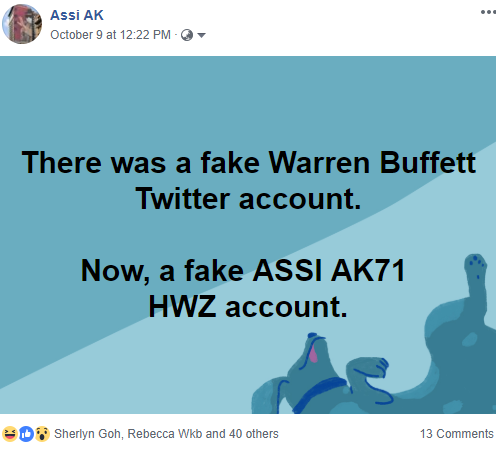I had dinner with a friend (and let's call him G) who is the academic sort. He spends a lot of time with plants and I have been picking his brains with regards to caring for my little planter in the sky.
One of the things we talked about during our after dinner chat was real estate investment. We were really gossiping because a mutual friend bought a condo unit a year or so ago and is now under water (i.e. the developer slashed prices for the remaining units).
I said to G that since this mutual friend of ours bought it because he likes the condo and wants to stay there, then, let us close an eye. It is a consumption item. For many, it is hard to be rational about a highly emotive thing like a home.
G told me that I was mistaken. It was bought as an investment. Alamak, as an investment, it was a bad idea. Price too high. Yield too low and likely to become lower. Throw in capital loss and we have a pretty horrible brew, I said.
Not surprisingly, many people think that property prices will always go up and are willing to pay the price as long as they can afford it.
We must remember that it should never be about affordability. It should always be about value for money.
I highlighted USA's lost decade and also how property prices in Japan deflated for 20 years which means that the Japanese experienced not one but two lost decades.
Why did Japan become a nation of mostly renters?
The Japanese people don't want to take the risk of buying a house today only to see its value half 10 years later.
G said, "This is Karma!"
Well, to be fair, G doesn't have any training in Economics and he probably did believe that there were Karmic forces at work.
I said, "Bubble."
I think I was somewhat curt.
Bad AK! Bad AK!
So, I am making up for it with this blog post.
Basically, when people pay high prices expecting that future earnings will justify those prices, there is an element of speculation.
More speculation, bigger the bubble.
So, if we remember the Rule of 15 which really means a property should have a rental yield of at least 6.6% (or a price earnings ratio of about 15x) before we think about buying, buying a property that has a gross yield of only 2% or 3% is highly speculative. (See related post #2 for more on the Rule of 15.)
Well, if we somehow know for sure that renters will be willing to pay two times or three times more than the rent they pay today, then, these low yielders could turn out to be pretty decent investments in future.
A working crystal ball, anybody?
The same goes for investing in stocks and I will let the related posts below do the rest of the talking.
So lazy!
Bad AK! Bad AK!
Related posts:
1. Affordability and value for money.
2. To buy or not to buy? Rule of 15.
3. $1.14 a share cheaper than 93c a share?
















